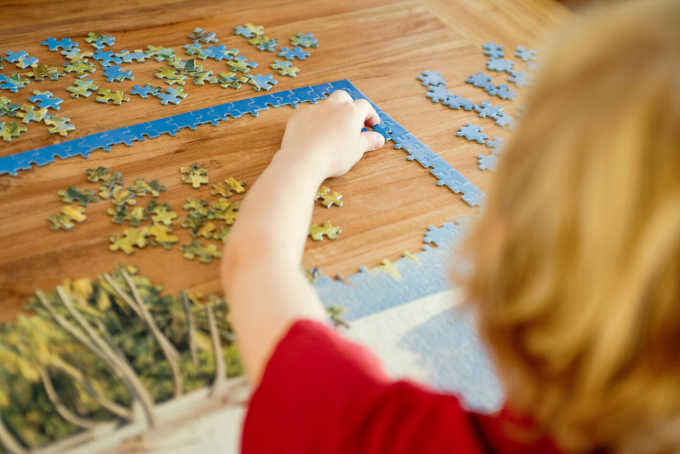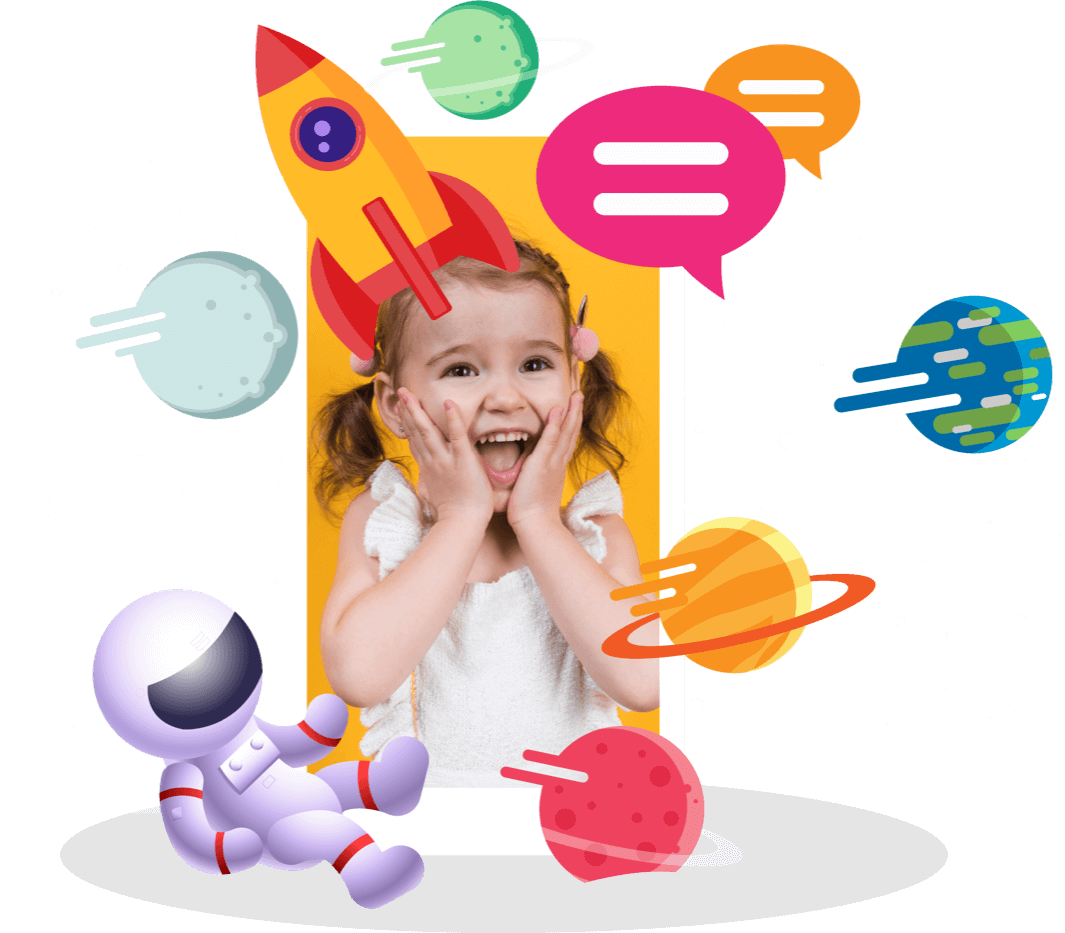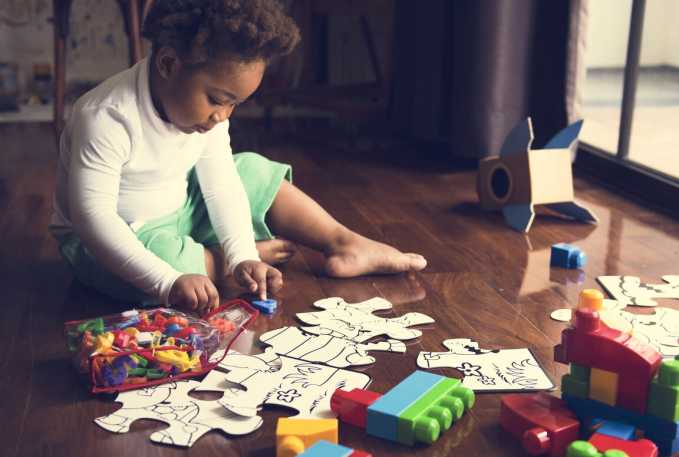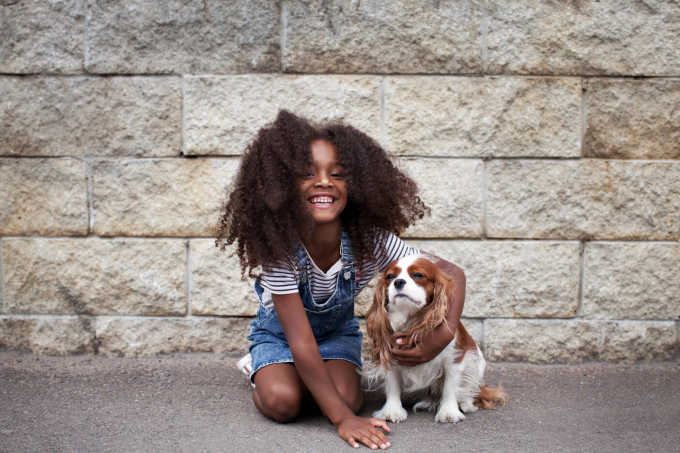PUZZLES! They are great fun, and a quality time where the output is such a beautiful piece you can display at home. Puzzles are also a great way to help your kiddo have so much fun with great learning opportunities.
From physical development like their finger strength to mental development like problem-solving skills, puzzles can teach many life skills that your child will need and use for their entire lives. Picking the pieces up, deciding on which piece works with which one, turning them around to make sure that they fit while also utilizing hand-eye coordination are just a few of the benefits of making puzzles with your kiddo.
In addition to being a relaxing activity, puzzles can encourage children to pay more attention to the whole image. Throughout the process, they develop memory skills and are more inclined to test their ideas the more they do it. When they encounter a problem, they gain problem-solving skills, and learn to embrace the challenges and deal with their frustrations.
Come along with 200k+ families!
Let's communicate better!
Download for Free.
Puzzle Games for Kids
Puzzle games encourage children to work their brains and figure out solutions. It’s such a great thing that puzzles are also so much fun to do!
You can easily find hundreds of boxes of jigsaw puzzles in the store. But there’s also the option to make your own puzzles at home!
Stick It!
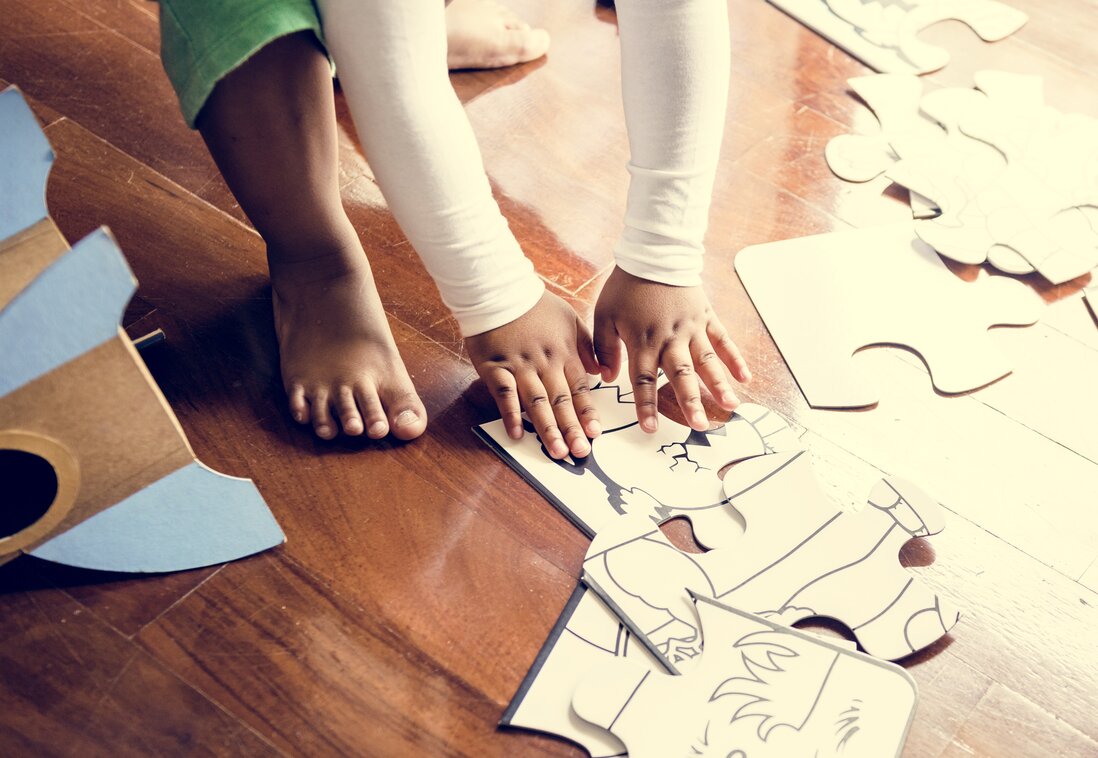
This will be one of the easiest puzzle games for kids you can DIY at home. You can draw the same shapes on two sheets of paper or you can print and cut out the shapes on one of the sheets. Then, you will need pieces of velcro to put both on the shapes and the sheet of paper with all of the shapes. The rest is to ask your kiddo to assemble the puzzle!
Pom Pom Caterpillar
Kiddos love pom poms in all sizes and colors. If you have any popsicle sticks lying around, this will be the perfect DIY puzzle game for your kid! You will mark the popsicle sticks with numbers starting from one. Ask your child to get colorful little pom poms and make pom pom caterpillars based on the number written on the popsicle sticks. Your child will have to pick up the pom poms, working their fine motor skills, and they will get to learn to count and practice!
Puzzle Books for Kids
There are many ways through which you can introduce puzzle games into your child’s routine. Some of them come in book form, which is really nice when you think about it. You can keep your kiddo’s achievement on paper and turn back and see how they’ve grown up!
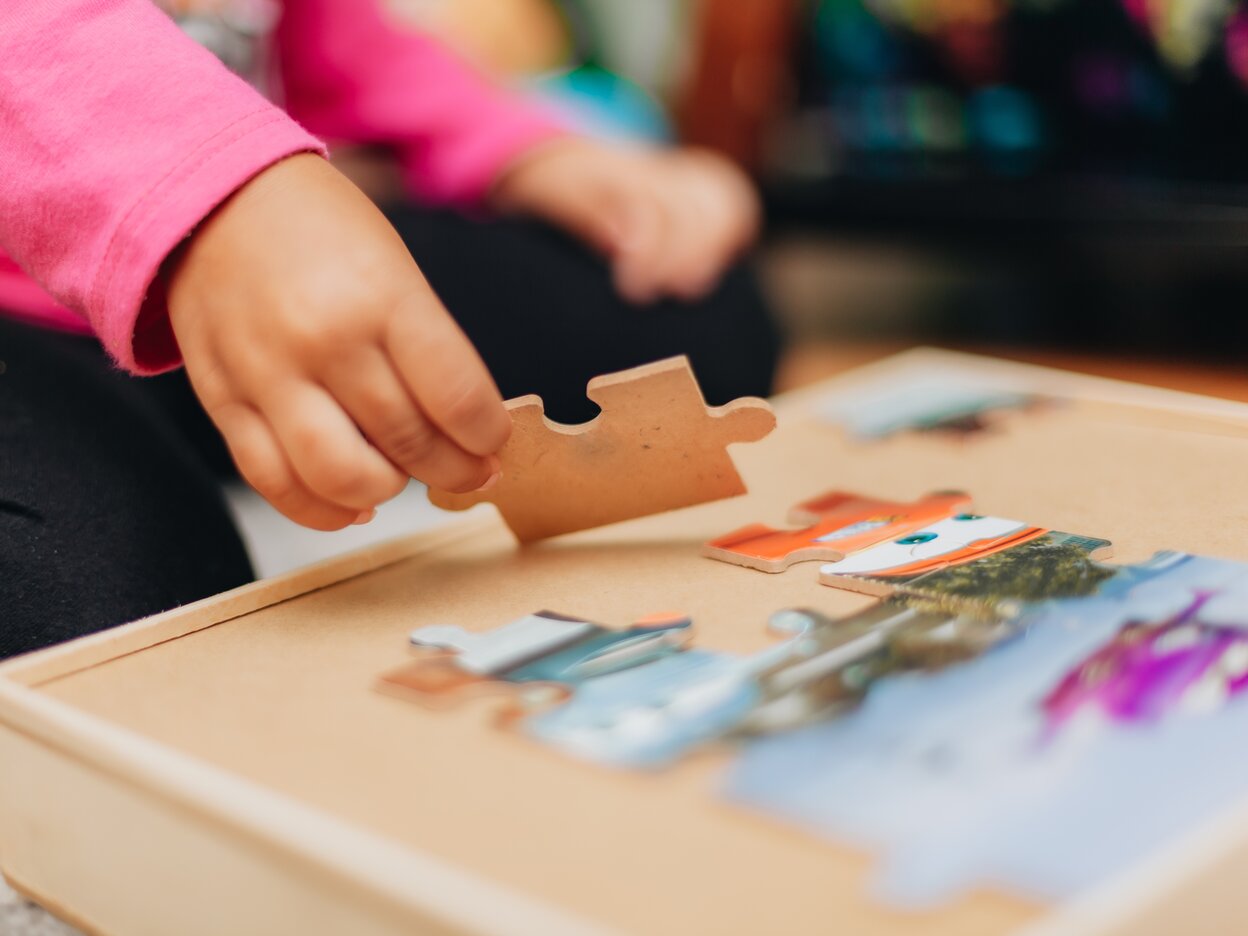
Dot-to-dot puzzle
This simple pen-and-paper fun puzzle game will help your kid learn to follow basic math concepts! Following the dots with the pen while also thinking about the next step, and recognizing the pattern that is going on in the puzzle will boost their critical thinking and focus skills. There are many fun dot-to-dot puzzle books out on the market, but you can also easily find ones online and print them out!
Find the object
This picture puzzle game will make your kid focus so hard that their head will visibly grow! We’re kidding! But trying to find strategically hidden objects can be great fun for kids. When looking for a book with the object search puzzle game, try to find ones that include everyday objects like those around the house. This way you will both get to practice words and sounds, and have fun at the same time.
Puzzle Toys for Kids
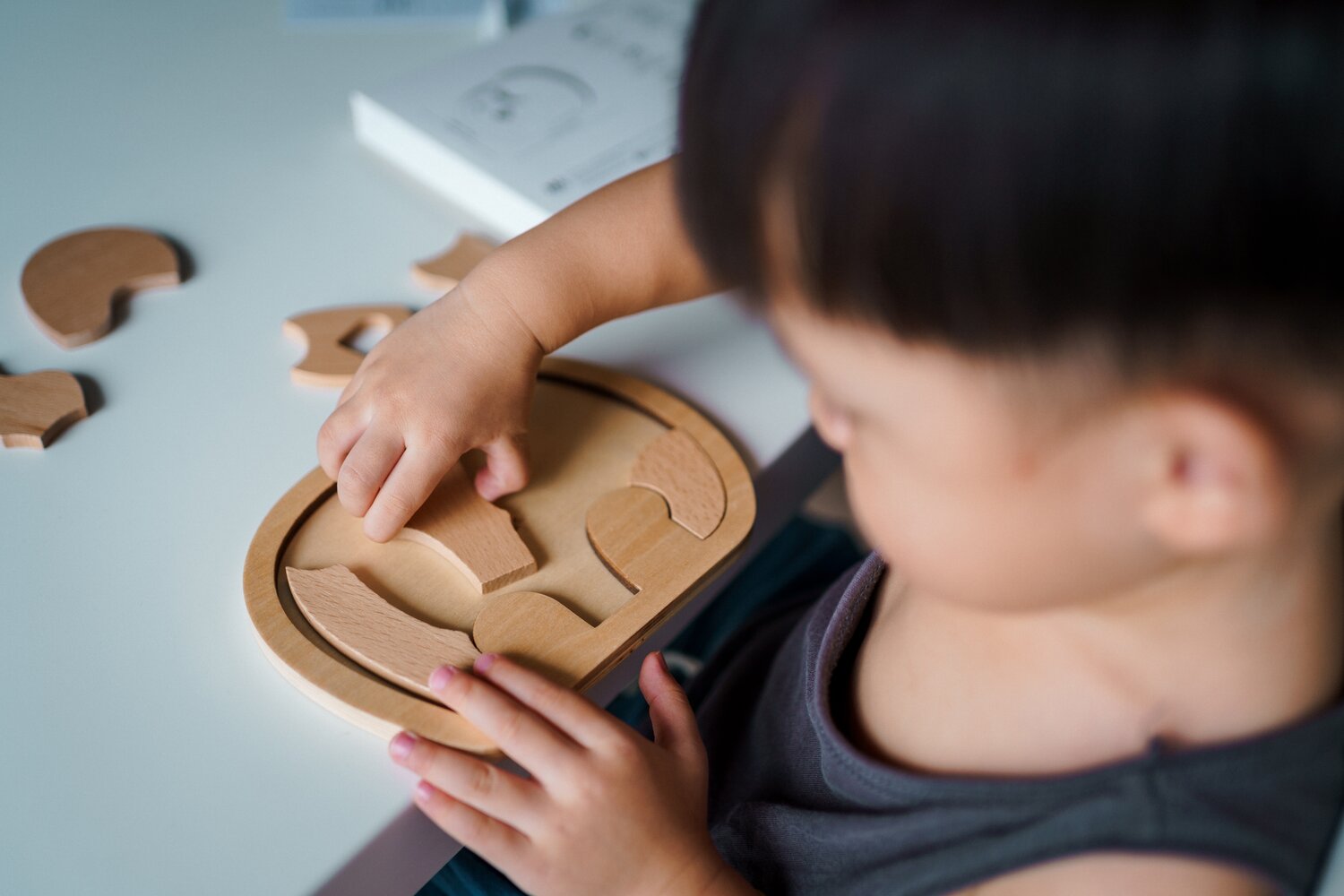
If you are looking for puzzle toys for kids, you are in luck. Because there are an abundance of options out on the market. From just simple blocks with a purpose to intricate designs, kids can learn a lot from puzzle toys while also having lots of fun.
For little ones, wooden puzzles are tremendous for being both fun and educational. Kids could try and fit the pieces where they need to go, working their fine motor skills as well as their brains. Some puzzles focus on logic, while others rely on the child being strategic. Your pick!
Come along with 200k+ families!
Explore the endless possibilities of learning!
Download for Free.
Autism & Puzzle
Children with autism often think in pictures. Some difficult or abstract concepts may be challenging for them to grasp when they are in written or spoken language. However, puzzles can give them a visual outlet to express themselves. In addition to being fun and quality time, doing puzzles is also a developmental support for kids with autism. They try to figure out where each piece would go, processing the visual cues and information, and help kiddos with autism boost their memory and focus skills. Moreover, picking up small pieces and putting them where they belong requires practicing fine motor skills and hand-eye coordination, too! This makes doing puzzles amazing tools for entertainment and learning.
